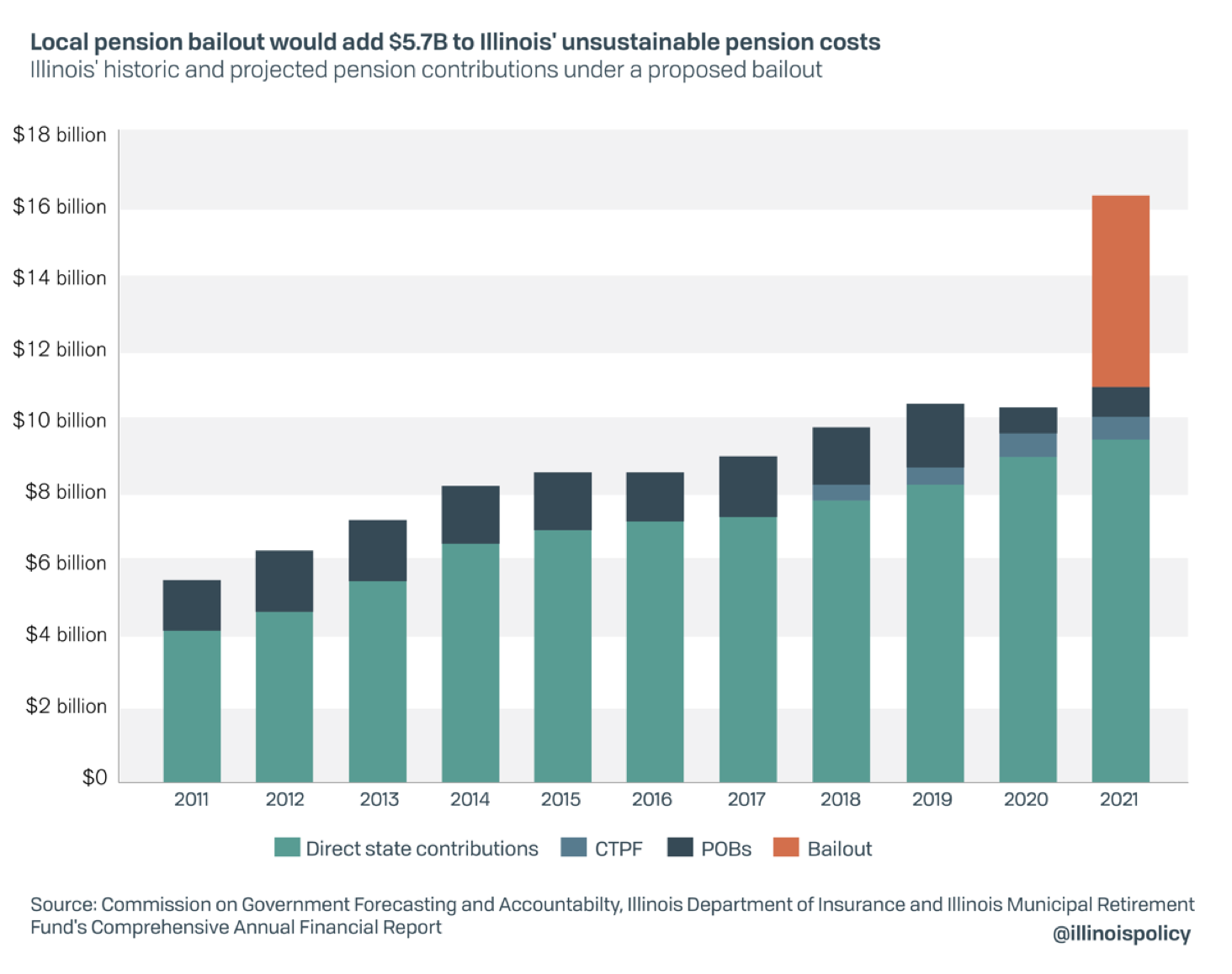State bailout of local pension funds would bring Illinois pension debt to $200B
Bailing out local governments’ underwater pension funds would exacerbate Illinois’ pension debt, inviting tax hikes on middle class Illinoisans.
If the state of Illinois bails out local pension funds, its total pension debt would grow to $200 billion, up from $137 billion today.
Chicago Mayor Lori Lightfoot has already floated the idea of a state bailout of Chicago pensions. But a bailout of local pension debt – Chicago included – would cause the state’s already massive annual budget deficits to explode, with pension contributions spiking by nearly 56%, or $5.67 billion, in fiscal year 2021. This would inevitably trigger tax hikes.

Illinois already spends more than 25% of its revenues on total pension costs. The state simply cannot afford to add local pension costs to the burden.
Official estimates currently peg Illinois’ combined local pension debt at around $63 billion, the majority of which is held by Chicago-related systems at $42 billion – making the city’s pension debt burden worse than that of 44 U.S. states.
Gov. J.B. Pritzker declined Lightfoot’s pension bailout request back in July. It’s not hard to see why: Illinois’ pension debt-to-revenue ratio – one gauge of a state’s ability to repay debt – is over 600%, the worst in U.S. history.
Moreover, pension debt is the primary reason Illinois’ credit rating remains the worst in the nation. A bailout would almost certainly lead to a credit downgrade and further increase the cost of borrowing.
Some have suggested consolidation of pension funds and boards as a solution to the pension crisis. Consolidating pension funds can help make them more efficient, save some money on administrative fees to asset managers and potentially help the funds achieve higher asset returns. However, the prospect of consolidation also comes with risks. First, lawmakers could attempt to sell consolidation as a silver bullet solution when the reality is it would be only a small step in the right direction that does nothing to solve the underlying debt problem. Second, consolidation would likely be used as cover for a state bailout of local pension funds.
Soaring pension costs have impaired Illinois’ ability to invest in core services that residents value. Adding local pension costs to that burden is simply not feasible. Instead, Springfield must control those costs by leading the state toward constitutional pension reform that protects earned benefits while allowing reasonable adjustments to the growth of future, unearned benefits.
